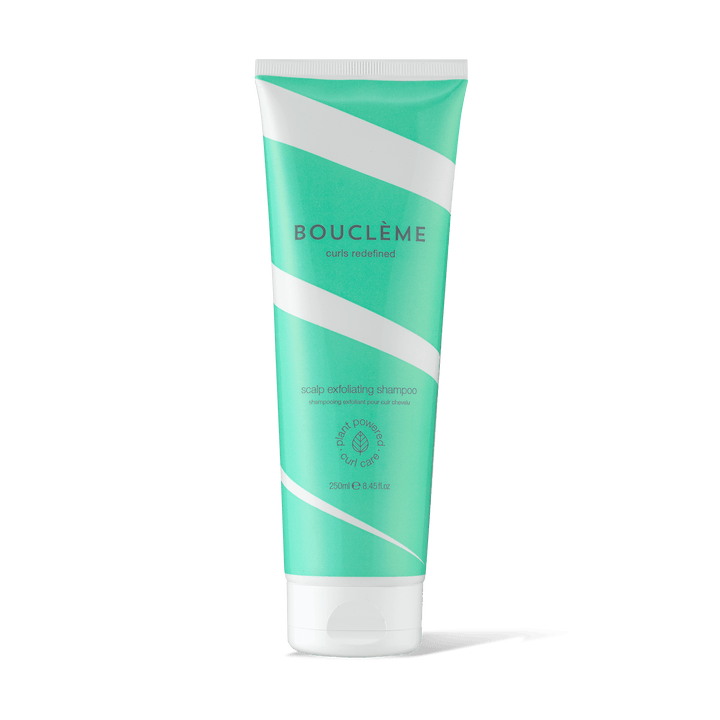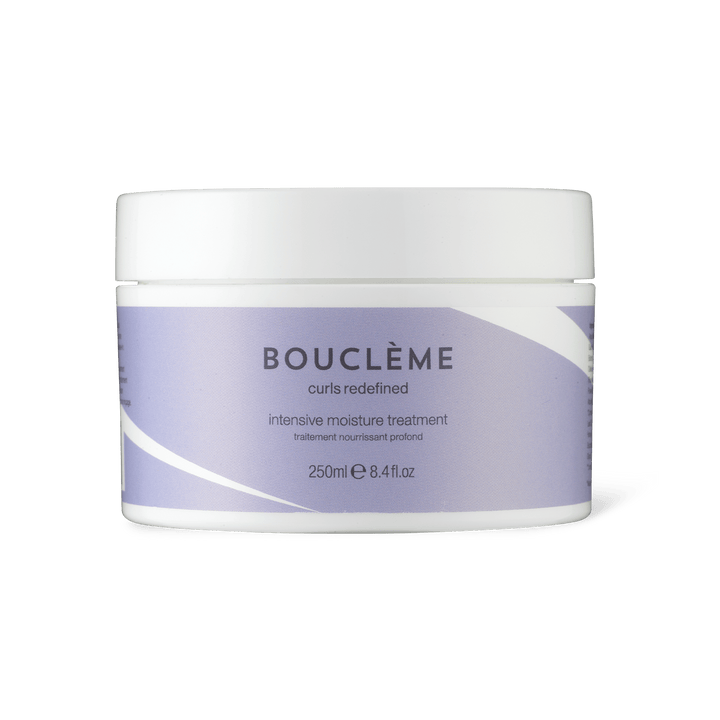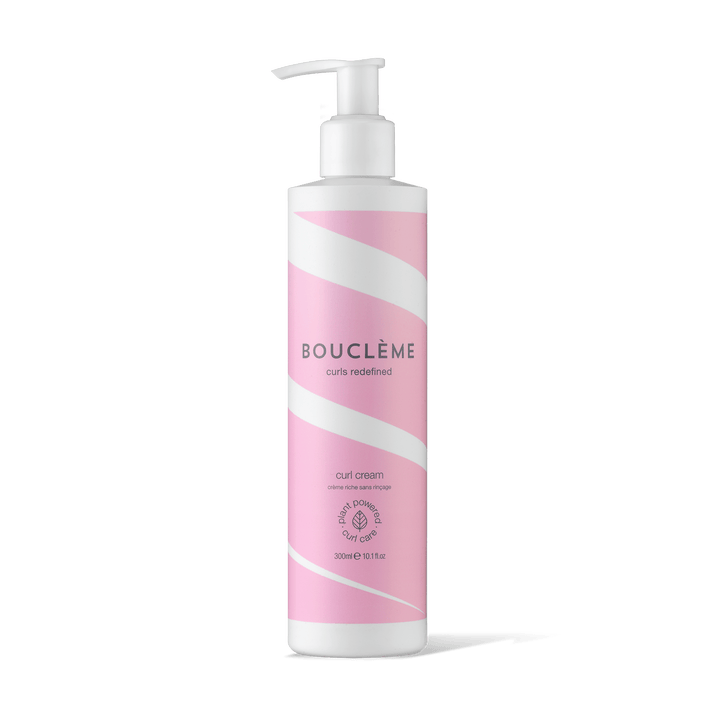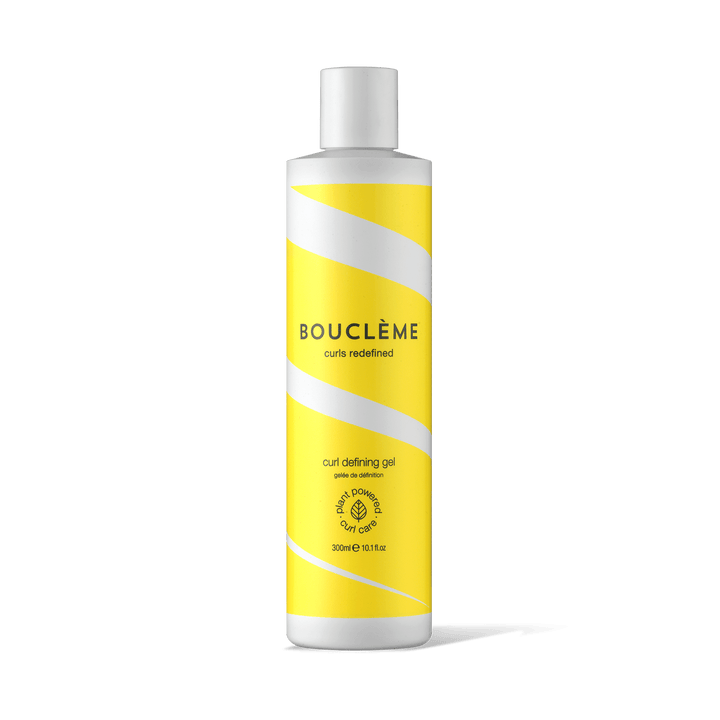Bouclème’s Guide To Low Porosity Hair
Do your curls always feel dry, no matter how much moisture you treat it to? Does your hair take forever to get wet and then dry again? Does your hair feel lank and weighed down, unable to absorb even the tiniest amount of product?
If you’re mentally saying ‘check, check, check’ to all these challenges, you might have low porosity hair. Let’s rise to this challenge! Although low porosity hair retains moisture, it’s way harder for that hydration to enter the hair shaft, so you need specific products and a tailored haircare routine.

Welcome to Bouclème’s guide to low porosity hair. We’ll walk you through the characteristics of low porosity hair, how to determine if you have low porosity hair and our best low porosity hair products to cleanse, condition and style.
What is low porosity hair?
When we think about our hair type, we tend to consider our strands’ texture and density, whether we have coils, curls or waves or maybe if our scalp is dry or oily.
But did you know you’re actually missing a really important piece of the puzzle? What will make a real difference to getting the best from your natural hair is understanding the structure of your locks. This all comes down to your hair’s porosity.
Hair porosity – low, medium and high – refers to your hair’s ability to absorb and retain moisture. The best way to think about this is to imagine your hair is like a sponge. Just like a sponge, your hair can soak up moisture, but how much it absorbs and how quickly it dries depends on its porosity.
Low porosity hair is like a sponge that’s a bit picky about soaking up water. It’s not that it can’t absorb moisture – it’s just a little more resistant to it. This type of hair has a tightly closed cuticle – the outer layer of your hair shaft that protects your hair from damage and imparts shine. This closed cuticle makes it harder for water and moisture to penetrate your hair shaft.
How do I know if I have low porosity hair?
Low porosity hair typically exhibits several distinctive characteristics. Here are four to look out for:
1. Water beading
When you wet your hair, does the water seem to sit on top of your strands rather than being absorbed quickly? If so, this could be a sign of low porosity. Low porosity hair often repels water rather than soaking it up.
2. Slow drying time
Does your hair take a long time to air dry, even in warm or dry conditions? Low porosity hair tends to dry slowly because the tightly closed cuticles inhibit moisture from evaporating quickly.
3. Product build-up
Do hair products like oils, serums, or leave-in conditioners seem to sit on top of your hair rather than being absorbed? If products tend to build up easily on your hair without being fully absorbed, it could indicate low porosity.
4. Lack of volume
Does your hair feel heavy or weighed down, even after washing and styling? Low porosity hair may struggle to absorb moisture and products, leading to a lack of volume and bounce.
How to check hair porosity
Determining your hair porosity is key to discovering what products and techniques will and won’t work for your hair. There are a few at-home ways to check your hair’s porosity, but none of them are fail safe. The only ‘true’ way to know is by sending a sample of your hair to a lab for testing.
Seven steps to caring for your low porosity hair
1. Remove buildup
Products tend to accumulate more readily on low porosity hair, which can weigh it down. Step up Scalp Exfoliating Shampoo to detoxify the scalp and eliminate buildup. This exfoliating shampoo for low porosity hair can help cleanse these residues effectively, rejuvenating your scalp and ensuring your hair remains lightweight and healthy.
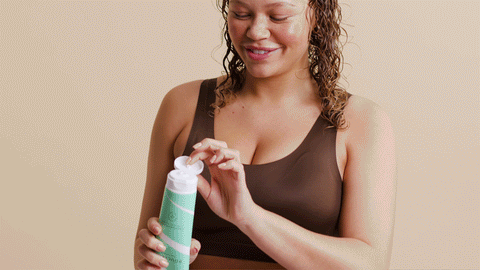
Plus, all our hair cleansers are formulated without sulphates to maintain the natural pH of the scalp and prevent dryness.
2. Add moisture
It’s hard for moisture to enter the hair shaft of low porosity hair, so it’s essential to apply conditioning products to damp hair to help open the hair cuticle and allow better product absorption. Our go-to super-hydrator, Intensive Moisture Treatment, is one of the best hair products for low porosity hair.
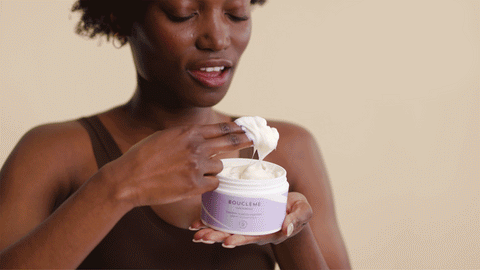
After washing your hair, gently squeeze out excess water with our Curl Towel, then slather on IMT evenly from roots to ends as a deep conditioning mask. Sit back and relax while marula oil works its moisturising magic and mafura butter rejuvenates, then rinse.
3. Apply heat
Low porosity hair can benefit from gentle heat to help open the hair cuticle and allow moisture to penetrate more effectively. Using a steamer, heat cap or warm Curl Towel allows maximum absorption of the active ingredients in our Intensive Moisture Treatment.
4. Style on damp hair
It’s a great idea to apply your low porosity hair styling products while your hair is still damp. Low porosity hair has cuticles that lie flat and tight, making it tough for anything to get through when it's dry.
But with damp hair, those cuticles lift up just a bit, making it easier for products to soak in. This way, you’ll get more even coverage, avoid any heavy, sticky build-up, and make the most out of your haircare routine.
5. Use lightweight, water-based stylers
When styling low porosity hair, it’s essential to choose the right products to ensure your hair remains light. Opt for lightweight, water-based products that won’t weigh your hair down or leave a greasy residue. Heavy butters and creams can be too much for low porosity hair, as they tend to sit on the surface rather than being absorbed.
All our styling products are water based, making them perfect for low porosity hair types. A good starting point is our Curl Cream, which you can easily dilute with a little water for smoother application. This ensures the product distributes evenly without overwhelming your locks.

Define your curls further or add hold with our Curl Defining Gel or Super Hold Styler. Both are designed to enhance your hair’s natural texture while keeping it light and bouncy.
6. Be mindful of how much product you use
We know it can be tempting to tweak with different stylers, but be mindful of how much product you’re using, as excessive layering can lead to buildup. This is especially true for low porosity hair, which doesn’t absorb products as easily.
It’s all about the marriage of water and product on application to ensure your styler is evenly distributed, maintain your hair’s natural bounce and prevent residue from weighing it down.
7. Protect hair at night
Cotton pillowcases tend to suck moisture out of your hair at night. Protect your low porosity curls while you slumber by resting your head on our Good Housekeeping-approved Silk Envelope Pillowcase.

Not only does it help to retain and maintain all the moisture you’ve added to your curls, it keeps frizz at bay and your face crease free.
With Bouclème by your side, your low porosity hair journey just got a whole lot smoother. Now you’ve got all you need to look after your hair from the inside out and find a healthy regime that works for you. It’s all about crafting an environment that creates the best version of your low porosity hair, according to YOU.







